Primary, secondary education in Barcelona 2024
- Education information
- Education information
- Structure of secondary school education in Barcelona
- Peculiarities of primary and secondary school education in Barcelona
- Types of the educational institutions providing secondary school education in Barcelona
- The specifics of passing exams in high school in Barcelona
- Literature and references
-
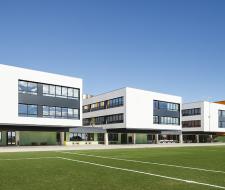 In 2022 our students' IB pionts score is 32.5 above the global average of 31.98
In 2022 our students' IB pionts score is 32.5 above the global average of 31.98 SpainBarcelonaCurrently watching: 7from 38000.00 € / yearApply with documents
SpainBarcelonaCurrently watching: 7from 38000.00 € / yearApply with documents -
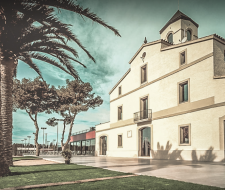 98% of our graduates enter university, with the remaining 2% choose sports careerr
98% of our graduates enter university, with the remaining 2% choose sports careerr SpainBarcelonaCurrently watching: 2from 9950.00 € / yearApply with documents
SpainBarcelonaCurrently watching: 2from 9950.00 € / yearApply with documents -
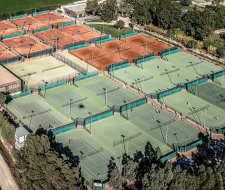 The school is included in a top-5 best tennis academies in Europe
The school is included in a top-5 best tennis academies in Europe SpainBarcelonaCurrently watching: 2from 40920.00 € / yearApply with documents
SpainBarcelonaCurrently watching: 2from 40920.00 € / yearApply with documents -
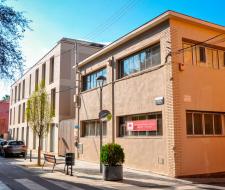 95% of students successfully enter the university
95% of students successfully enter the university SpainBarcelonaCurrently watching: 1from 9104.00 € / yearApply with documents
SpainBarcelonaCurrently watching: 1from 9104.00 € / yearApply with documents -
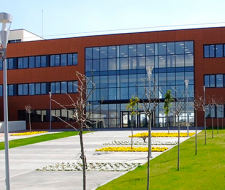 Recognized as one of the best schools in Spain
Recognized as one of the best schools in Spain SpainBarcelonaCurrently watching: 1from 645.00 € / monthApply with documents
SpainBarcelonaCurrently watching: 1from 645.00 € / monthApply with documents -
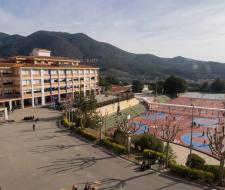 The school is in the top 5 best bilingual schools in Spain
The school is in the top 5 best bilingual schools in Spain SpainBarcelonaCurrently watching: 1from 2700.00 € / monthApply with documents
SpainBarcelonaCurrently watching: 1from 2700.00 € / monthApply with documents -
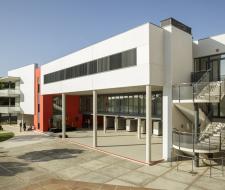 In 2023 an average IB score made up 34.4 with the highest grade - 43
In 2023 an average IB score made up 34.4 with the highest grade - 43 SpainBarcelonaCurrently watching: 1from 10650.00 € / yearApply with documents
SpainBarcelonaCurrently watching: 1from 10650.00 € / yearApply with documents -
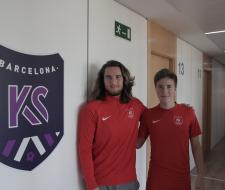 from 41995.00 € / 10 monthsApply with documents
from 41995.00 € / 10 monthsApply with documents -
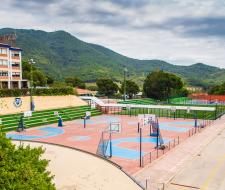 In 2023 average mark obtained by students who passed the IIBDP: 36 out of 45
In 2023 average mark obtained by students who passed the IIBDP: 36 out of 45 SpainBarcelonaCurrently watching: 2from 12000.00 € / yearApply with documents
SpainBarcelonaCurrently watching: 2from 12000.00 € / yearApply with documents -
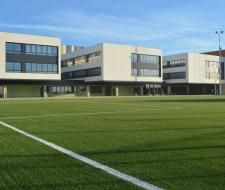 In 2022 our students' IB pionts score is 32.5 above the global average of 31.98
In 2022 our students' IB pionts score is 32.5 above the global average of 31.98 SpainBarcelonaCurrently watching: 2from 10000.00 € / yearApply with documents
SpainBarcelonaCurrently watching: 2from 10000.00 € / yearApply with documents
Alternative destinations
Education information
In the modern world, secondary school education in Spain for international schoolchildren and students has become one of the most popular in Europe. The specifics of secondary school education in Spain and especially in Barcelona can lead to a dead end, because, at first glance, the education system in Spain is quite confusing. However, our experts present to your attention not only a list of the best educational institutions in Spain that accept foreign students, but also the features of secondary school education in Spain as a whole.
Many foreign students from all over the world choose this country, because of the main advantages, such as:
Educational process in Barcelona is focused primarily on the personal development of each of the students;
Educational staff place great emphasis on individual work with students;
All educational system in general helps international students to decide the future profession or specialization at the university.
In addition, Spanish schools have been studying foreign languages from the very beginning.
Education information
Barcelona, Spain, renowned for its vibrant culture and rich history, is also celebrated for its high-quality secondary school education. This guide offers insight into the complexities and unique aspects of secondary schools in Barcelona, particularly for international students.
Secondary schools in Barcelona are increasingly popular among international students. The educational system, while initially appearing complex, is designed to cater to a diverse student body. Here, we explore the specifics of secondary school education in Barcelona and Spain, presenting a detailed list of top schools in the city.
Many students worldwide are drawn to Barcelona for its educational benefits, which include:
-
A focus on personal development: Schools in Barcelona prioritize the individual growth of each student.
-
Individual attention: Educational staff in Barcelona emphasize personalized learning experiences.
-
Career preparation: The educational system in Barcelona aids students in choosing their future professions or university specializations.
-
Language Learning in Barcelona's Middle Schools
-
A significant feature of schools in Barcelona is the early introduction and emphasis on foreign language studies. This approach benefits international students, offering them a supportive environment to enhance their language skills.
Our experts have compiled a list of the best educational institutions in Barcelona that welcome international students. This list provides a comprehensive view of each school, including their unique features and educational philosophies.
Structure of secondary school education in Barcelona
The Spanish education system, especially in Barcelona, is structured into three distinct stages, catering to the needs of international students. This structure ensures a comprehensive educational journey from childhood to adolescence.
Primary School: The Beginning of the Educational Journey
The first stage in the Spanish education system is the primary school. International children begin their education at the age of six in primary classes. This foundational stage in schools in Barcelona lasts for six years, where students develop basic academic and social skills.
Middle Schools in Barcelona: Continuing the Educational Path
After completing primary school, students progress to middle schools in Barcelona at the age of 12. This crucial phase lasts four years and is designed to build upon the knowledge and skills acquired in primary school. Middle schools in Barcelona play a pivotal role in preparing students for the challenges of high school.
High School in Barcelona: The Final Stage Before Higher Education
The final stage of secondary education in Barcelona is the high school, known as Bachillerato. Contrary to its literal translation as "bachelor's degree," Bachillerato is not related to higher education but is rather a stage of secondary education. Upon completing this stage, international students in Barcelona have two main options:
-
Pursue a full secondary education in high school (Bachillerato), after which they can enter a higher education institution. This path is ideal for those aiming for academic and professional careers requiring university degrees.
-
Opt for vocational education (Formación Profesional), which focuses on practical training and skills development for specific trades or professions.

What makes Spanish schools special among all schools in the world? Why do parents choose primary and secondary schools in Spain?
There are many reasons. This is a complete immersion in the Spanish language and culture, in the family environment, the strategic position of the country in the south of Europe. Outstanding, rankings educational institutions - well, a rich historical and artistic heritage, warm and hospitable people, colorful holidays, bright cities, unforgettable traditions and folklore!
Peculiarities of primary and secondary school education in Barcelona
In Barcelona, Spain, the secondary education system encompasses a comprehensive eight-year study period. International students typically begin this educational journey at the age of 6 and complete it by the age of 14. This stage is compulsory, and upon completion, students are awarded a certificate of full secondary education.
The initial five years of this period constitute the primary school phase, known as Educación Primaria. During this stage, students are usually taught all subjects by a single teacher.
The curriculum at primary schools in Barcelona includes essential subjects such as:
-
Spanish language
-
Mathematics
-
Literature
-
Natural science and the outside world
-
Physical training
-
Music art
A key highlight of primary education in Barcelona is the early introduction of foreign language learning, typically starting at the age of 8. English is often the primary foreign language taught, and the instructors are frequently native speakers, often brought in from abroad.
As students progress to the second stage, they enter the actual middle school level, referred to as Educación Secundaria. This phase introduces students to a variety of new subjects and a different teaching approach, where each subject is taught by specialized teachers. Additional subjects introduced at this stage include:
-
Basics of computer science
-
Drawing
-
Physics
-
Biology, among others
This well-rounded approach in the middle schools of Barcelona ensures that students receive a diverse and thorough education, preparing them for future academic pursuits.
Types of the educational institutions providing secondary school education in Barcelona
Barcelona offers three distinct types of secondary education:
Public Schools (Colegios Públicos): These schools are free for Spanish citizens. However, they do have some limitations, including:
-
Less advanced technical facilities and equipment compared to private schools.
-
Larger class sizes, which may limit personalized attention from teachers.
-
A higher proportion of students from lower-income families, which can sometimes impact classroom discipline and overall academic performance.
Despite these challenges, the quality of education in public schools is not necessarily inferior to other types of schools. It's important to note that public schools primarily enroll children of Spanish citizens and residents with a residence permit. For families planning to relocate to Spain, public schools might not be an option until residency is established.
Parastatal Schools (Colegios Concertados): These are partially funded by either the Catholic Church or the State (via local authorities). Although many are affiliated with the Church, religious study is not always a compulsory part of the curriculum for international students. Compared to public schools, parastatal schools often place a stronger emphasis on foreign language learning.
Private Schools (Colegios Privados): These institutions cater to both Spanish and international students. Particularly notable in Barcelona are international private schools that follow educational programs from countries like the UK, USA, Germany, France, among others, while incorporating mandatory Spanish curriculum subjects. They offer programs like A-Level and the International Baccalaureate (IB). The key benefits of private schools in Spain include:
-
More affordable education compared to international standards, yet maintaining high quality.
-
Instruction primarily in English, with compulsory Spanish subjects taught in Spanish.
-
Smaller class sizes, allowing teachers to dedicate more time to each student. The faculty often comprises highly qualified teachers from around the globe.
Each type of school in Barcelona offers unique advantages and caters to different needs, providing a range of options for families to consider when choosing the right educational path for their children.
The specifics of passing exams in high school in Barcelona
In Spanish secondary schools, including those in Barcelona, rigorous testing and examinations are a key part of the academic process. From the early stages of elementary school, international students are required to take mini-exams in all mandatory subjects at the end of each trimester. Additionally, teachers have the discretion to conduct tests and assessments as they deem necessary, ensuring that students remain engaged and avoid complacency. The academic year culminates with comprehensive final exams covering both compulsory and elective subjects. The results of these exams are aggregated, and a council of teachers convenes to decide on each student's promotion to the next grade, taking into account their overall performance.
Upon completing their secondary education, students undergo final examinations. If a student fails, they may have to repeat the year, but this can only happen twice and must be completed before turning 16. Those who pass these exams are awarded a certificate of compulsory secondary education, qualifying them to enter Bachillerato, the high school level of education.
The grading system in Spanish educational institutions is based on a 10-point scale:
-
Below 5 points: Unsatisfactory (SS or D)
-
5 points: Satisfactory (S)
-
6 points: Good (BI)
-
7 to 8 points: Very Good (NT)
-
9 points: Excellent (SB)
-
10 points: Outstanding (MH)
This system ensures a clear and standardized assessment of student performance throughout their educational journey in Spain.
Learning programs-summary information
| Name | Meaning | Equivalent | Min. age | Duration, years |
Next stage | Cost |
|---|---|---|---|---|---|---|
| GCSE | General certificate of secondary education | secondary education (non-accomplished) | 14 | 1–2 | A-Levels | 15,000 USD+ |
| A-Levels | Advanced level | secondary education (accomplished) | 16 | 2 | University | 15,000 USD+ |
| BTEC | Business and Technology Education Board | secondary special education | 14 | 2–3 | University/ work | 15,000 USD+ |
| Oxbridge Preparation | Preparing for Oxford and Cambridge | secondary education (accomplished) | 17 | 1 | University | 15,000 USD+ |
| International Baccalaureate | International baccalaureate | secondary education (accomplished) | 16 | 2 | University | 18,000 USD+ |
| Foundation/ Pathway Year | Preparatory year | admission to the 1st year of university | 17 | 1 | University | 14,000 USD+ |
| NCUK | The Northern consortium | 2 year university | 17,5 | 1 | 2 year University of NCUK | 13,000 USD+ |
| Special Preparation (Medics/Math/Business) | Specialized training | - | 14 | optional | optional | 4,000 USD+ |
| Academic English | Academic English | Language school | 8 + | 6–12 months | School or University | 8,000 USD+ |
Advantages and disadvantages of English schools
| Advantages | Disadvantages |
|---|---|
| The opportunity to enter the best universities in England, USA, Canada, Switzerland, Europe, the world | Expensive |
| High quality of education and academic standards | Strong workload |
| Perfect English after graduation | The need to change the social environment; it takes time to adapt |
| Useful contacts | The difficulty of choosing the most suitable school for the child, requires a qualified specialist |
Top 21 boarding colleges in England 2024
| 1 | Cardiff Sixth Form College |
| 2 | National Mathematics and Science College |
| 3 | Abbey College Cambridge |
| 4 | d'Overbroeck's College |
| 5 | MPW London |
| 6 | CATS Cambridge |
| 7 | Kensington Park |
| 8 | DLD London |
| 9 | King's College St Michael’s |
| 10 | Bellerbys Cambridge |
| 11 | Chelsea Independent College |
| 12 | MPW Cambridge |
| 13 | Bellerbys Brighton |
| 14 | CATS London |
| 15 | St Clare's Oxford |
| 16 | Bishopstrow College |
| 17 | CATS Canterbury |
| 18 | Bellerbys London |
| 19 | Ealing Independent College |
| 20 | Cambridge Tutors College |
| 21 | Abbey Manchester |



